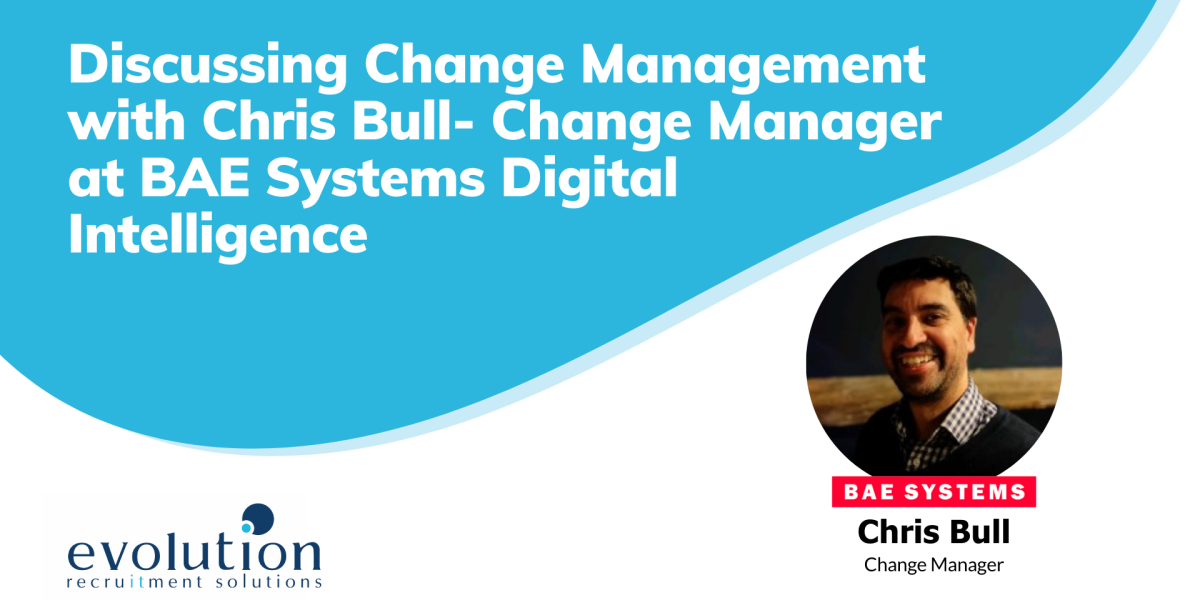
Chris Bull, Change Manager at BAE Systems Digital Intelligence, began his career in the public sector. Working in government, he had experience in a number of departments including those relating to defence and security. His move to the private sector came when he saw that those working in a consulting role were perhaps having more of an impact in shaping organisational change. He knew BAE Systems well, because they had provided some of the technologies and systems that were being used within the public sector.
In his current role, Chris works both on projects with clients and alongside people within BAE Systems to support change management.
Having deep relationships with customers and truly understanding what they are trying to achieve is at the heart of the BAE Systems Digital Intelligence ethos. This is particularly key within change management, where taking those goals, prioritising them, scheduling them and ultimately achieving them is part and parcel of the role.
“What we try to do is build those relationships with key partners in the organisations and work alongside them, to understand their problems as they’re emerging. Then, we can identify ways that we can support them in in resolving those or moving things forward. Which, in large organisations, can be a complex picture to unravel.”
In the digital transformation sphere, where many organisations may be working with legacy technology systems, change management is essential to the success of projects. By understanding the project from start to finish, how it will affect people and what will need to be implemented to ensure that the project has the desired outcome, Chris is able to guide projects to a workable, realistic solution.
“Using the example of the cloud. Companies understand the benefits of moving from the legacy data centres to the cloud. We to remind them to focus on the people. You’re not going to be able to realise those benefits unless you have the culture change and the skills uplift, increased data literacy amongst their workforce, as well as the new infrastructure etc. We map that alongside the technical changes and build a plan that that will last in the long term. That’s how we ensure success.”
Working in change management means working at the forefront of technology, helping customers to move away from old systems and towards more efficient tech. Two of the key trends at present are data and artificial intelligence (AI). As organisations try to move away from older methods and towards the cloud, data management is one of the areas that requires new solutions.
“Data volume and complexity is not a brand new challenge but there has been an exponential curve of data acquisition. Organisations are then trying to generate value from that while the systems that they currently have are falling ever further behind.”
Machine learning and AI are solving different challenges, mainly around the availability of talent. Working mainly with clients in the public sector, Chris sees the difficulties that they have attracting certain professionals and AI can be used to ease some of the strain.
“They don’t have enough people, and they certainly have enough people with the cutting edge skill set. So, how much more can technology do to provide that insight?”
Change – no matter how beneficial it will be – can often be met with pushback. Part of Chris’ role is handling this, managing communication and ensuring that the benefits are clear and visible. For many organisations, the temptation is to begin communicating the project when it is almost complete, but this would be a mistake.
“The project will fail – however great the technology is – because the workforce just aren’t ready for it. They’re resistant to it. You just don’t get those benefits that have been promised in the business case. It’s important to get that message across early, and bring in change people almost at the design stage of a big transformation to say, look this future landscape and all these fantastic new things that can come in.”
An initial stage of project planning should be assessing the impact on the workforce, what will change for them and what they need to understand in order to accept and use the new technology in a way that will benefit them.
“Rather than leaving it till the very last minute and finding that actually none of your workforce understands what cloud is and they are scared of it because it feels really amorphous and huge, what we should have done is implemented a whole cloud awareness programme a year ago, just so people understand what’s coming.”
Consultants, in some circles, can be seen as expensive and not always bringing the change required. This viewpoint is outdated and overlooks the enormous benefits that consultants bring to businesses. Chris’ role enables him to facilitate critical change within organisations which will future-proof them.
“We are that bridge between the end users and the people in those critical roles within our organisations we work with, who are often very busy. We carve out time for them, but also be their voice, understanding them intimately and then working with the product teams or the delivery teams to build something that actually works for them.”